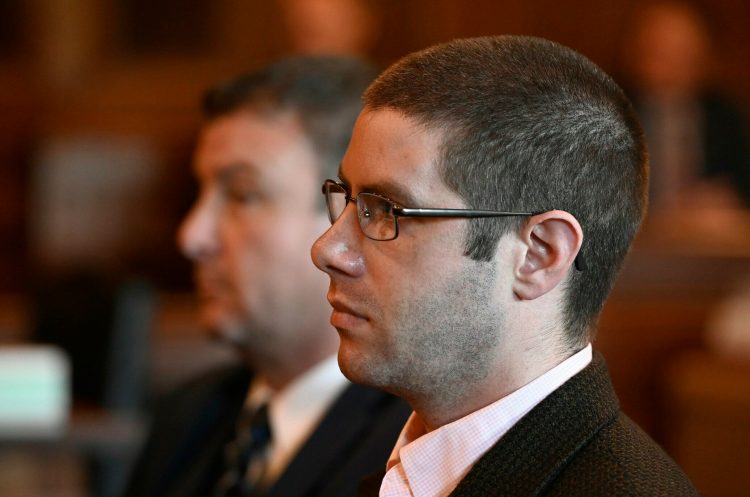A police investigator stood in front of the jury, pointed his finger like a gun and jammed it into another man’s neck.
That jury ultimately found John D. Williams guilty of murdering a Somerset County Sheriff’s deputy. Cpl. Eugene Cole, who was 61 when he was killed in April 2018, was the first Maine law enforcement officer fatally shot in the line of duty in three decades.
That demonstration of their deadly encounter was a dramatic and contested moment at the trial last year, and it is now central to an appeal to Maine’s top court. The Maine Supreme Judicial Court heard oral arguments in the case Tuesday.
The defense attorney argued that the re-enactment was prejudicial and differed from the theories in expert reports. The state contended that it was accurate and helpful to connect the testimony of multiple witnesses.
“You had a confession from Mr. Williams that he had killed Deputy Cole,” Associate Justice Ellen Gorman said during the state’s argument. “You had a statement from Mr. Williams that he had done so to ‘eliminate’ him. What was to be gained (with the demonstration)?”
Assistant Attorney General Don Macomber said the demonstration was important because the jury would need to decide whether the killing was murder or the lesser offense of manslaughter.
“This demonstration … showed that this was an execution style murder, which demonstrates beyond all doubt that this was intentional,” Assistant Attorney General Don Macomber answered.
Defense attorney Verne Paradie, who represented Williams at trial, also appealed the judge’s decision to allow part of a confession to be used at trial. He said officers beat Williams when they first found him hiding in a remote cabin at the end of a four-day manhunt, and he later confessed because he wanted to avoid further violence and pain.
The justices asked about the officers who interviewed Williams, who were not part of the arrest and did not harm him.
“He was handed over to police officers who were nothing but kind and polite,” Gorman said.
“He viewed them as being the good cops that were going to prevent further beatings,” Paradie said during his response.
The justices will also consider Williams’ life sentence. Paradie argued that the court did not give enough weight to mitigating factors, like statements about his troubled childhood and his long struggle with addiction. Acting Chief Justice Andrew Mead ticked off the aggravating factors for that sentence, including the effect Cole’s death had on the community.
“Pretty powerful stuff, huh?” Mead said.
“There were reasons to impose a life sentence,” Paradie responded. “I think I was trying to make the point that there were also substantial reasons not to.”
The justices never asked Macomber about the sentence. They do not have a timetable to rule on the appeal. Williams, who is now 32, is incarcerated at the Maine State Prison.
Send questions/comments to the editors.





Success. Please wait for the page to reload. If the page does not reload within 5 seconds, please refresh the page.
Enter your email and password to access comments.
Hi, to comment on stories you must . This profile is in addition to your subscription and website login.
Already have a commenting profile? .
Invalid username/password.
Please check your email to confirm and complete your registration.
Only subscribers are eligible to post comments. Please subscribe or login first for digital access. Here’s why.
Use the form below to reset your password. When you've submitted your account email, we will send an email with a reset code.